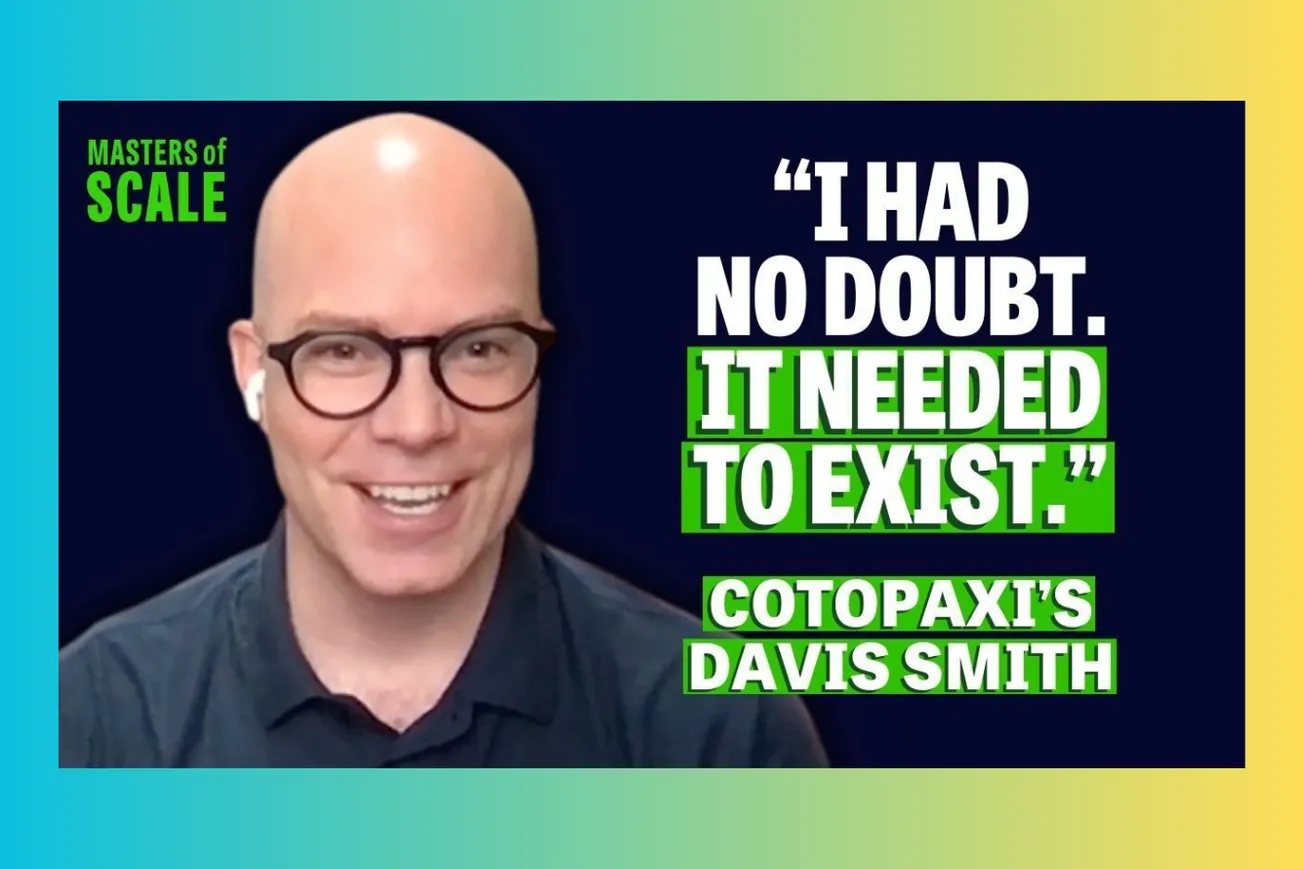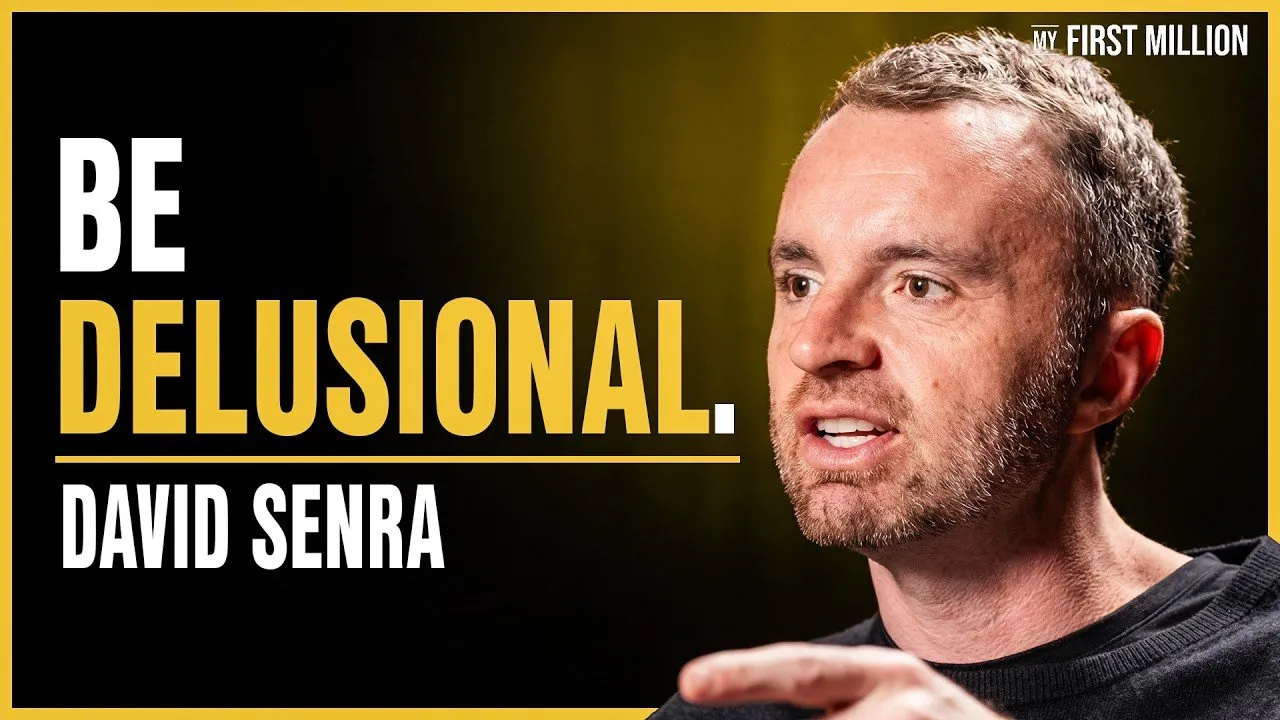Table of Contents
From midnight epiphanies to llama-powered launches, discover how mission-driven businesses can scale without compromising values.
Key Takeaways
- Mission-driven businesses can achieve massive scale while maintaining core values and social impact commitments
- Personal failures and setbacks often provide essential lessons for building stronger, more sustainable companies
- Creative marketing approaches that align with brand values can generate explosive early growth and customer loyalty
- Choosing co-founders based on complementary skills rather than personal relationships leads to healthier business partnerships
- Conscious capitalism models can be more profitable long-term through reduced costs and stronger customer connections
- Strong leaders know when to step aside and trust others to take their vision to the next level
- Authentic storytelling and transparent values resonate powerfully with modern consumers seeking purpose-driven brands
- Building efficiency before scaling prevents the common trap of accelerating losses alongside rapid growth
Timeline Overview
- Early Background — Davis Smith's international childhood in Latin America, formative missionary experience in Bolivia, learning to help others through faith-driven service
- First Business Failure — E-commerce baby business in Brazil reaches $20M revenue but fails due to premature scaling without efficiency, relationship breakdown with cousin co-founder
- The 36-Hour Epiphany — Divine inspiration strikes during sleepless nights in Brazil, complete Cotopaxi vision emerges including colorful backpacks, social mission, llama branding
- Building the Team — Strategic founder recruitment via LinkedIn, mountain cabin vision session, assembling experts rather than friends for complementary skills
- Creative Launch Strategy — College campus tours with live llamas, 24-hour adventure race event, 5,000 participants generate 30,000 social media posts in first day
- Scaling and Impact — Growth to $150M revenue while maintaining 1% revenue donation commitment, B-Corp certification, hiring Chief Impact Officer before Chief Marketing Officer
- Leadership Transition — Stepping away from CEO role to serve three-year church mission in Brazil, carefully selecting successor aligned with company values
From Failure to Divine Inspiration
- Smith's first venture, a Brazilian e-commerce baby business, reached $20 million in revenue but collapsed because the team scaled rapidly without building operational efficiency first, causing accelerated losses that required constant fundraising to survive
- The painful dissolution of his business partnership with his cousin taught Smith that choosing co-founders based on personal relationships rather than complementary skills often leads to devastating outcomes for both the business and the relationship
- His formative experience as a 19-year-old missionary in Bolivia, witnessing extreme poverty firsthand and seeing a fellow missionary give his entire meal to a hungry child, planted the seeds for his lifelong commitment to using business as a force for good
- After years of feeling unfulfilled despite business success, Smith experienced what he describes as divine inspiration during a 36-hour period in his Brazilian apartment where the complete vision for Cotopaxi emerged fully formed
- The epiphany included every detail from the colorful backpack designs inspired by Latin American culture to the social mission structure, the llama mascot, and even the "Do Good" slogan that would define the brand
- Smith's journal entries from that transformative weekend show remarkable accuracy to what Cotopaxi eventually became, suggesting the vision was both comprehensive and divinely guided from the very beginning
Strategic Foundation Building
- Learning from his previous co-founder disaster, Smith deliberately recruited team members through LinkedIn based on their expertise in outdoor gear design and manufacturing rather than personal connections or convenience
- The founding team of five outdoor industry experts met in a Utah mountain cabin where Smith laid out his complete vision for building an adventure brand that would use profits to fight global poverty
- Smith chose Utah as the company headquarters specifically because of its strong outdoor industry ecosystem and the concentration of experienced professionals who understood adventure gear markets and customer needs
- Early investors initially resisted the idea, with most VCs arguing "we already have Patagonia" and questioning why the world needed another outdoor brand in an already crowded marketplace
- Kiren Green from Foundry Group Adventures became the first believer, providing crucial early funding that enabled Smith to prove the concept and attract additional investment from successful founders like the Warby Parker team
- The decision to incorporate as a Benefit Corporation from day one went against legal advice, as attorneys warned that no venture-backed company had successfully raised capital with that structure in 2014
Revolutionary Launch Strategy
- Smith purchased actual llamas and brought them to college campuses around Salt Lake City, creating an unforgettable brand introduction that aligned perfectly with the adventurous, unconventional spirit of Cotopaxi
- The launch centered around a 24-hour Amazing Race-style adventure event where participants formed teams to complete outdoor challenges and community service projects, earning points while living the brand values for an entire day
- Every participant received a unique Cotopaxi backpack made from remnant materials, creating 5,000 brand ambassadors who immediately began sharing photos and experiences across social media platforms
- The event generated 30,000 social media posts in the first 24 hours, creating massive organic reach and brand awareness without traditional advertising spend or marketing campaigns
- Winners received adventure trips and additional gear, but the real victory was creating a community of customers who had personally experienced the brand's values rather than just purchasing products
- The launch strategy perfectly embodied Cotopaxi's core message of adventure, community service, and environmental responsibility while generating authentic user-generated content that money couldn't buy
Mission-Driven Business Model
- Cotopaxi commits 1% of total revenue (not profit) to fighting extreme poverty, a significant financial commitment that often exceeded the company's actual profits in early years but demonstrated unwavering dedication to the mission
- Smith believes extreme poverty can be eradicated in his lifetime, pointing to the dramatic reduction from 94% of the world living in extreme poverty in 1820 to under 10% today as proof that continued progress is possible
- The company operates as both a Delaware Benefit Corporation and certified B-Corp, legally requiring consideration of social and environmental impact alongside shareholder returns in all business decisions
- Initial investors had to fully embrace the social mission before receiving funding, with Smith explicitly stating that investors uncomfortable with the 1% revenue donation were not the right partners for Cotopaxi
- The hiring of a Chief Impact Officer before a Chief Marketing Officer demonstrated the company's priorities, despite board pressure to focus on revenue generation rather than impact measurement and optimization
- Smith's Chief Impact Officer, recruited from Salesforce, completely overhauled their giving strategy from emotional donations to data-driven impact measurement, ensuring donated funds created measurable change rather than good intentions
Conscious Capitalism in Practice
- Smith argues that conscious capitalism actually reduces costs through multiple channels: better talent attraction and retention, lower marketing expenses due to word-of-mouth advocacy, and reduced material costs through sustainable practices like using remnant fabrics
- Cotopaxi has sold over five million backpacks made from leftover materials from other outdoor brands, proving that sustainable practices can be both environmentally responsible and financially advantageous
- The company's mission-driven approach creates authentic marketing that resonates more powerfully than traditional advertising, with Smith noting "I rarely talk about our product, I almost never talk about our product, I just talk about what we represent"
- When speaking to other entrepreneurs and CEOs about conscious capitalism, Smith focuses on inspiration rather than preaching, believing that "people are good by nature" and want to make a positive impact but often don't know how to begin
- The approach attracts customers who become passionate brand advocates rather than transactional purchasers, creating sustainable competitive advantages that pure product features or pricing cannot replicate
- Smith emphasizes that doing business the right way ultimately delivers better shareholder returns through reduced operational costs, stronger customer loyalty, and more effective talent acquisition and retention strategies
Leadership Evolution and Transition
- Despite his deep emotional connection to Cotopaxi, Smith recognized that his skills were best suited for taking the company from zero to $150 million rather than scaling to the next level of growth
- When his church asked him to lead a mission in Brazil for three years, Smith and his wife made the decision "in about one second" because it aligned perfectly with their core values and life purpose
- The transition required finding a successor who shared Cotopaxi's values and mission while bringing more experience in scaling companies beyond Smith's proven range of expertise
- Smith deliberately shared his CEO search on social media, demonstrating transparency and allowing the process to align with Cotopaxi's authentic, community-focused brand approach rather than traditional executive search methods
- He remains connected to the company through board membership and regular communication with leadership, maintaining his founder passion while respecting his successor's operational authority
- His current work mentoring hundreds of young missionaries in Brazil represents a natural extension of his leadership development philosophy, scaling his impact on the next generation of world-changing leaders
Stepping away from a thriving company to serve others requires the same courage that builds mission-driven businesses in the first place. Smith's journey proves that authentic leadership means knowing when your greatest contribution shifts from running the company to empowering others who can take it even further.





